
Epsom is a New Zealand electorate in Auckland, returning one Member of Parliament to the New Zealand House of Representatives. Since the 2014 general election, Epsom has been represented by David Seymour, the leader of the ACT Party.

Helensville was a New Zealand parliamentary electorate in the Auckland region, returning one Member of Parliament to the House of Representatives. The electorate was first established for the 1978 election, was abolished in 1984, and then reinstated for the 2002 election. The seat was won and held by John Key through his term as prime minister. Chris Penk of the National Party held the seat from the 2017 general election until its abolition in 2020, when it was replaced with the new Kaipara ki Mahurangi electorate, which Penk also retained.
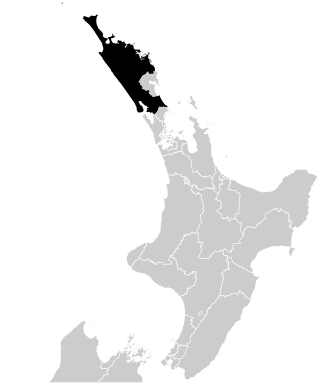
Northland is a New Zealand parliamentary electorate, returning one Member of Parliament to the New Zealand House of Representatives. The electorate was established for the 1996 election. It was represented by National Party MP John Carter from 1996 to 2011, and then National's Mike Sabin until his resignation on 30 January 2015. The by-election in March 2015 was won by New Zealand First party leader Winston Peters. Peters was defeated by National's Matt King in the 2017 general election. King in turn was defeated by the Labour Party's Willow-Jean Prime in the 2020 general election, who became the first Labour MP elected for the area since the party won the predecessor electorate Bay of Islands in 1938. Prime was later defeated in the 2023 election by National's Grant McCallum

Rongotai is a New Zealand electorate, returning a single member to the New Zealand House of Representatives. The current MP for Rongotai is Julie Anne Genter of the Green Party. She has held this position since the 2023 general election.
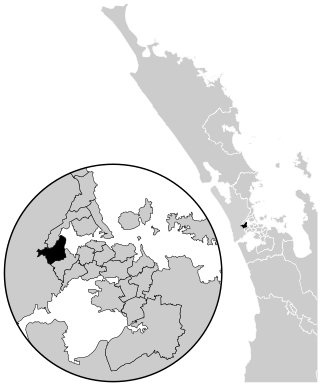
Te Atatū is a parliamentary electorate, returning one Member of Parliament to the New Zealand House of Representatives. The current MP for Te Atatū is Phil Twyford of the Labour Party.

Te Tai Tokerau is a New Zealand parliamentary Māori electorate that was created out of the Northern Maori electorate ahead of the first Mixed Member Proportional (MMP) election in 1996. It was held first by Tau Henare representing New Zealand First for one term, and then Dover Samuels of the Labour Party for two terms. From 2005 to 2014, it was held by MP Hone Harawira. Initially a member of the Māori Party, Harawira resigned from both the party and then Parliament, causing the 2011 by-election. He was returned under the Mana Party banner in July 2011 and confirmed at the November 2011 general election. In the 2014 election, he was beaten by Labour's Kelvin Davis, ending the representation of the Mana Party in Parliament.

Wellington Central is an electorate, represented by a Member of Parliament in the New Zealand House of Representatives. The current MP for Wellington Central is Tamatha Paul of the Green Party. She has held this position since the 2023 general election.

The 2014 New Zealand general election took place on Saturday 20 September 2014 to determine the membership of the 51st New Zealand Parliament.
The Mana Movement, originally known as the Mana Party, is a former political party in New Zealand. The party was led by Hone Harawira who formed it in April 2011 following his resignation from the Māori Party. Harawira won the by-election in Te Tai Tokerau of 25 June 2011 for the Mana Party and retained the seat during the 2011 general election in November.
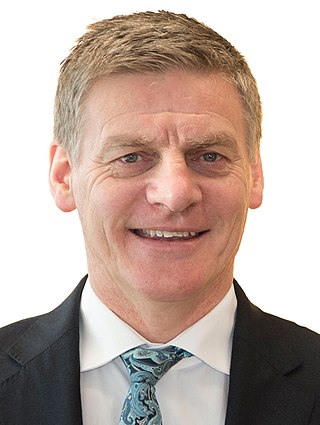
The 2017 New Zealand general election took place on Saturday 23 September 2017 to determine the membership of the 52nd New Zealand Parliament. The previous parliament was elected on 20 September 2014 and was officially dissolved on 22 August 2017. Voters elected 120 members to the House of Representatives under New Zealand's mixed-member proportional (MMP) voting system, a proportional representation system in which 71 members were elected from single-member electorates and 49 members were elected from closed party lists. Around 3.57 million people were registered to vote in the election, with 2.63 million (79.8%) turning out. Advance voting proved popular, with 1.24 million votes cast before election day, more than the previous two elections combined.
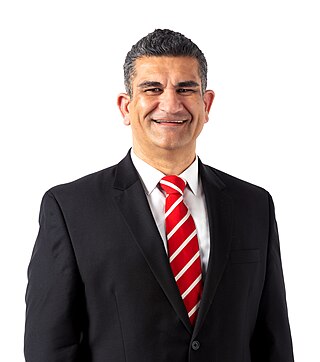
Tahere Paul Eagle is a New Zealand politician and former member of the New Zealand House of Representatives for the Rongotai electorate from 2017 to 2023. He was a Wellington City Councillor from 2010 to 2017 and was the first person of Māori descent to be Deputy Mayor of Wellington, but was defeated in a landslide when he sought the mayoralty as an independent candidate in 2022.
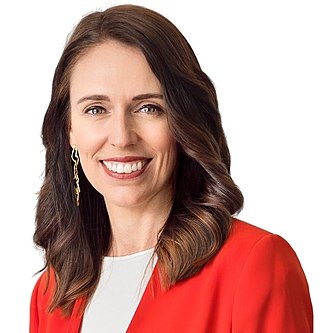
The 2020 New Zealand general election was held on Saturday 17 October 2020 to determine the composition of the 53rd New Zealand Parliament. Voters elected 120 members to the House of Representatives, 72 from single-member electorates and 48 from closed party lists. Two referendums, one on the personal use of cannabis and one on euthanasia, were also held on the same day. Official results of the election and referendums were released on 6 November.
67 electorate members of the New Zealand House of Representatives were to be elected in the general election on 27 November 1999. The tables below show the candidates for each electorate. Incumbent electorate MPs are highlighted in blue, and those candidates who were members of the previous parliament via their party list—regardless of which electorate they previously contested—are highlighted in red.

Willow-Jean Prime is a New Zealand politician who was elected to the New Zealand Parliament at the 2017 general election as a list representative of the New Zealand Labour Party. At the 2020 election, she won the electorate of Northland by 163 votes, the closest election of the 2020 cycle.
Geoffrey Leonard Simmons is an economist and former leader of The Opportunities Party (TOP), a political party in New Zealand. He stood for TOP in the February 2017 Mount Albert by-election, in the Wellington Central electorate in the 2017 general election, and in the Rongotai electorate in the 2020 general election.

Ronald Matthew King is a New Zealand politician who was a Member of Parliament for the National Party from 2017 to 2020. During his time as an opposition MP, King's roles included membership of the Justice, Māori Affairs, and Transport and Infrastructure Select Committees, and National's spokesperson for Regional Development, Rural Communities, and Transport. While in parliament he promoted a bill to create a new offense for "king hits" but it was defeated.

Mark Robert Ball is a New Zealand politician and former police officer. He was mayor of the Franklin District, in the Auckland region, for six years until the position was disestablished in 2010. He currently serves as leader of the Heartland New Zealand Party.
This page lists candidates contesting electorates in the 2020 New Zealand general election.
DemocracyNZ is an unregistered political party in New Zealand. The party was established and is led by former National Party MP Matt King following the anti-vaccination occupation at parliament. The party claims to be centrist and stand for democracy, equality, and unity for New Zealanders. Its public statements have been focused on opposition to New Zealand's pandemic response and to climate change regulations.
This page lists candidates contesting electorates in the 2023 New Zealand general election.













